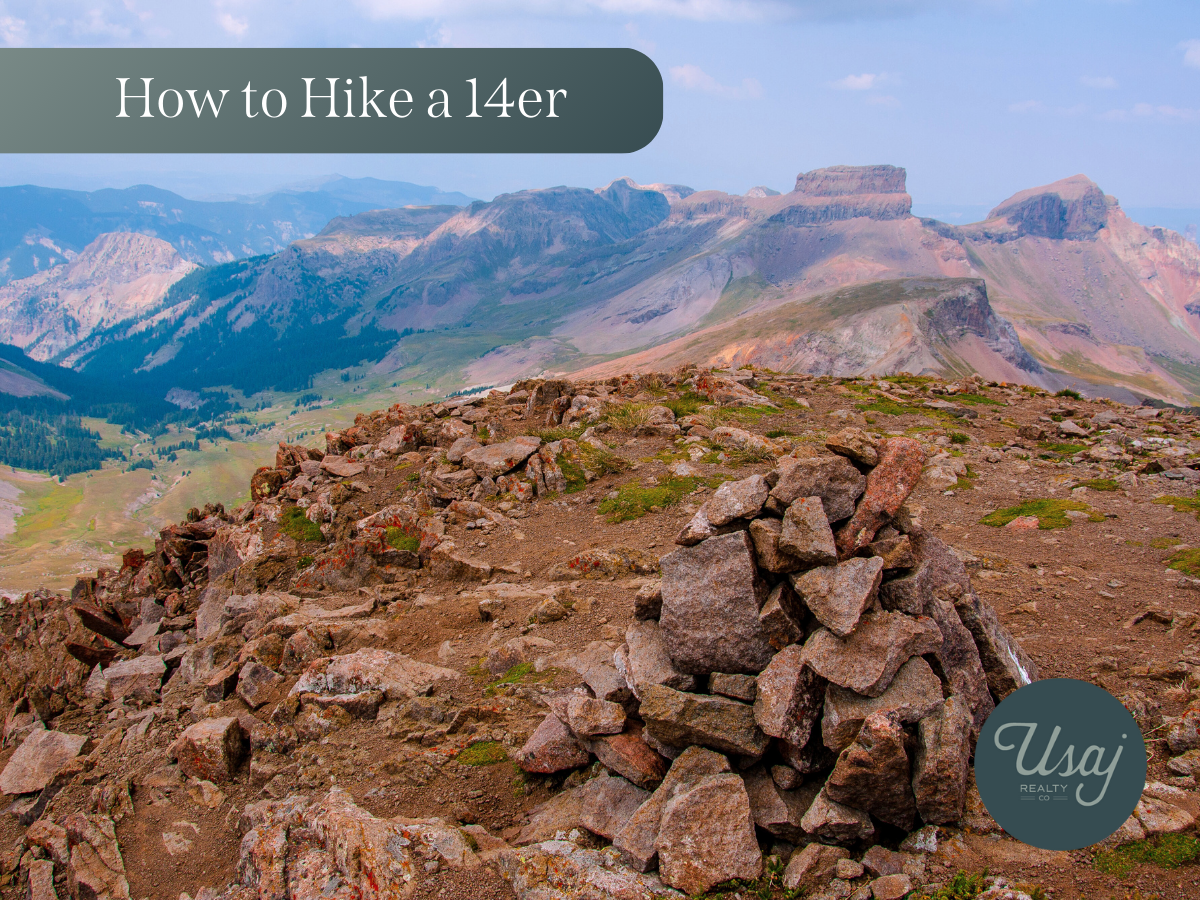How to Hike a 14er
Are you ready to conquer your first 14er? Hiking a mountain that rises more than 14,000 feet above sea level is a thrilling and rewarding experience. Whether you’re an outdoor beginner or simply a nature lover wanting to push your limits, we’ve got you covered with these essential tips to ensure your adventure is safe and enjoyable.
Research Your Trail
Before you lace up your hiking boots, it’s crucial to research the specific 14er trail you plan to hike. Colorado boasts some of the most iconic 14ers, such as Mount Elbert, Grays Peak, and Longs Peak. Check the trail length, elevation gain, and overall difficulty. Websites like AllTrails or 14ers.com offer detailed descriptions, maps, and recent trail conditions from other hikers.
Check the Weather Forecast
Mountain weather can be unpredictable. Check the forecast for the day of your hike and be prepared for sudden changes, especially at higher elevations. Afternoon thunderstorms are common in mountainous areas, so aim to start your hike early in the morning. A good rule of thumb is to be off the summit by noon to avoid storm risks.
Start Early
Starting early not only helps you avoid afternoon storms but also gives you ample time to complete your hike without rushing. It’s a good idea to hit the trailhead just as the sun is rising. This way, you can enjoy the peaceful morning light and increased chances of wildlife sightings.
Acclimate to Higher Elevations
If you’re coming from lower elevations, spend a day or two acclimating to higher elevations before your hike. Symptoms of altitude sickness can include headaches, dizziness, and nausea. Spending time at a higher elevation helps your body adjust and reduces the risk of altitude sickness. Towns like Leadville or Estes Park offer great places to acclimate while enjoying the local scenery.
Pack the Essentials
Packing the right gear is essential for a successful hike. Here’s a checklist to get you started:
- Plenty of Water: Staying hydrated is crucial. Carry at least 3 liters of water.
- High-Energy Snacks: Pack snacks like trail mix, energy bars, and fruit to keep your energy levels up.
- Map and Compass: Even if you have a GPS, having a map and compass as backups is always a good idea.
- First-Aid Kit: Be prepared for minor injuries with a basic first-aid kit.
- Proper Hiking Gear: Wear sturdy hiking boots, moisture-wicking clothing, and layers to adjust to changing temperatures.
Wear Proper Hiking Gear
Your gear can make or break your hiking experience. Invest in sturdy hiking boots that provide ankle support and have been broken in before the hike. Choose moisture-wicking clothing to keep sweat away from your skin, and layer up so you can easily adjust to temperature changes. Don’t forget a hat and sunglasses to protect yourself from the sun’s rays.
Listen to Your Body
Hiking a 14er is physically demanding, so listen to your body. Take breaks as needed and don’t push yourself too hard. Altitude sickness can affect anyone, regardless of fitness level. If you start feeling symptoms like shortness of breath, dizziness, or severe headaches, it’s important to descend to a lower elevation and rest.
Leave No Trace
Respect the environment by following the Leave No Trace principles. Pack out all trash, stay on designated trails, and leave nature as you found it. By doing so, you help preserve the beauty of the wilderness for future generations to enjoy.
Recommended 14ers in Colorado
If you’re looking for a great 14er to start with, here are some popular recommendations in Colorado:
- Mount Elbert: The highest peak in Colorado, offering stunning views and a relatively gentle ascent.
- Grays Peak: Often hiked with Torreys Peak, it’s known for its accessibility and beautiful scenery.
- Mount Bierstadt: A great option for beginners, with a well-marked trail and less technical terrain.
- Quandary Peak: Offers a steady climb with rewarding vistas at the summit.
Ready to take on the challenge of a 14er? Start planning your adventure today! And remember, preparation is key to a successful and enjoyable hike. For more tips and personalized advice, feel free to reach out to our experienced team. Happy hiking!





